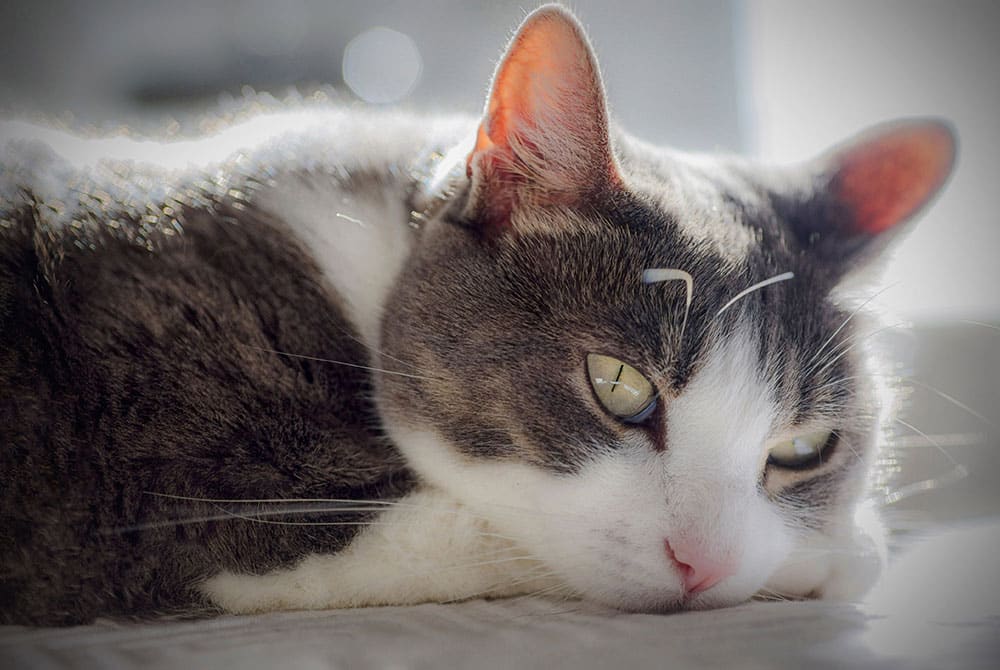What to Expect After Cat Spay or Neuter Surgery: A Complete Recovery Guide for Orange County Pet Owners
Top 3 Takeaways – What to Expect After Cat Spay or Neuter Surgery
Introduction
Spaying or neutering your cat is one of the most important preventative health decisions you can make. It helps reduce overpopulation, lowers the risk of reproductive diseases, and often improves behavior. Still, many pet parents feel anxious after surgery day—especially when they’re sent home with a groggy, quiet kitty and a list of recovery dos and don’ts.
At Bliss Animal Hospital, we’ve walked hundreds of Orange County families through this process. In this guide, our veterinary team shares everything you need to know about post-operative care for both male and female cats—including timelines, warning signs, behavioral changes, and how to ensure a smooth and safe recovery.
Spay vs. Neuter: What Happens During Surgery?
What’s Involved in a Cat Spay?
A spay, or ovariohysterectomy, is a surgical procedure performed under general anesthesia in which the ovaries and uterus are removed. It requires a small incision on the abdomen, which is closed with absorbable sutures under the skin. Because it involves internal organs, it is considered more invasive than a neuter and usually results in a longer recovery time.
What’s Involved in a Cat Neuter?
Neutering (castration) involves removing a male cat’s testicles through small incisions in the scrotum. In most cases, the skin is not sutured closed, as it heals quickly on its own. The procedure typically takes less than 15 minutes and has minimal post-op complications if aftercare instructions are followed.
Recovery Timeline: What to Expect Day-by-Day
| Day | Neutered Cats (Male) | Spayed Cats (Female) |
|---|---|---|
| Day 0 | Groggy, wobbly walking, reduced appetite | Same, but abdominal soreness is more noticeable |
| Day 1–2 | Licking risk begins, mild swelling or bruising | Needs help getting into litter box, should remain crated or confined |
| Day 3–4 | Energy returns, appetite normal, incision scabs over | Incision still sensitive, internal sutures healing, restrict activity |
| Day 6–10 | Back to normal but still restrict jumping | Recheck incision for swelling, stay indoors, limit stairs/climbing |
| Day 14 | Fully healed | Vet may check incision. Most restrictions lifted if healing is complete |
Most male cats act normal again within 2–3 days. Female cats may need up to 10–14 days of monitored care before returning to regular activity.
Your At-Home Recovery Checklist
How to Monitor the Incision Site
Inspect the incision twice daily:
For Neuters (Males)
For Spays (Females)
Warning Signs
Call your veterinarian immediately if you notice any of these issues.
How to Prevent Licking and Chewing
The most common cause of complications is licking the surgical site. Even a few seconds of intense grooming can lead to:
Tools That Help
Always monitor your cat closely—even with these tools on.
Managing Pain and Medications
At Bliss Animal Hospital, every spay/neuter patient receives a customized pain management plan. Most cats are sent home with anti-inflammatories and possibly additional pain meds based on age, weight, and overall health.
Signs your cat might be in pain:
Do not give human medications like Tylenol or Advil—they are toxic to cats. Call us if you suspect your cat is in pain.
Eating, Drinking, and Litter Box Tips
Feeding Tips
If your cat refuses food for more than 24 hours, call your vet.
Litter Box Tips
Behavior Changes to Expect (Short- and Long-Term)
| Behavior | Is It Normal? |
|---|---|
| Sleeping more for 1–2 days | ✔ Yes |
| Acting aggressively or hiding | ✔ Yes, short-term fear or discomfort |
| Spraying in male cats | ✘ Often stops or reduces post-neuter |
| Appetite increase | ✔ Common post-op |
| Calm demeanor | ✔ Neutered cats tend to be less territorial |
| Weight gain | ✔ Preventable with portion control & exercise |
FAQ: Will my cat’s personality change?
No. Spay/neuter surgeries do not alter your cat’s core personality. You may see reductions in hormone-driven behaviors (e.g., mating yowls, roaming, or marking), but their temperament remains the same.
Frequently Asked Questions
Can I leave my cat alone after surgery?
Cats should not be left unsupervised for more than a few hours during the first 24–48 hours. If you must leave, confine your cat to a safe, enclosed room with food, water, litter, and no high surfaces.
How long should I keep the cone on?
Keep the e-collar or recovery suit on for a minimum of 7–10 days, or until your veterinarian confirms the incision is healed and your cat is no longer at risk of licking.
Can I bathe my cat or clean the incision?
No. Avoid bathing your cat for 10–14 days. Do not clean the incision with alcohol, hydrogen peroxide, or ointments unless explicitly instructed by your vet.
When can my cat play again?
For males, light activity can resume after 5 days. For females, avoid running, jumping, or play for at least 10–14 days post-op. Too much activity can lead to wound complications.
Special Notes for Outdoor Cats
If your cat normally goes outdoors, they must remain indoors for at least 10–14 days post-surgery. Outdoor activity increases the risk of:
Create a temporary enrichment zone indoors with:
What’s Included With Surgery at Bliss Animal Hospital
We know that veterinary care is an investment. That’s why we’ve built our spay/neuter protocols to include:
As a locally owned, Fear Free Certified hospital, we combine compassion with top-tier medical care. You’re not just another appointment on the calendar—your pet is family here.
Conclusion
The spay or neuter procedure is a short event, but the recovery period is when your cat needs your support the most. A smooth, safe healing process relies on a quiet environment, restricted movement, proper monitoring, and quick action if problems arise.
At Bliss Animal Hospital, we’re here to support you and your pet every step of the way—from consultation to full recovery. We encourage you to reach out with any questions and lean on our team for help. You’re not in this alone.
Call to Action (CTA)
Schedule online or call us at (949) 354-5201 to book your appointment today.
Cat Spay and Neuter Services in Orange County, CA
Meet Our Team
The blissfull faces behind the care
Driven by compassion and purpose, here is the team who will work to make a difference in your pet’s life. Every single visit.


What your neighbors are saying!
Areas we Serve at Bliss Animal Hospital:
“Better Care. Better medicine.” This is our motto, and our veterinary staff stands behind it.
Bliss Animal Hospital is conveniently located at the Home Depot Plaza in Foothill Ranch, less than a 10-minute drive from the neighborhoods of Lake Forest, Rancho Santa Margarita, Mission Viejo, and Irvine (Great Park and Portola Springs). We also serve more distant regions like Tustin, Coto de Caza, Las Flores, Ladera Ranch, Laguna Hills, Laguna Woods, Stonegate (Irvine), Woodbury (Irvine), and Cypress Village (Irvine).
Our vet hospital is ready to serve not only the communities of South Orange County but also anyone who truly believes that veterinary medicine starts with relationships.






Leave A Comment